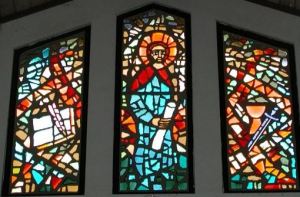Outline
7:1-20 From Pronouncements of Judgment to Oracles of Hope
1-4 Deterioration of society on the public level
5-6 Deterioration of society in private
7 The commitment to remain loyal
8-17 The reversal of Israel’s fortunes
18-20 Hope for God to act in his goodness
Points of interest
- “Woe is me” (7:1) is a comparatively rare phrase in the Hebrew Bible, used elsewhere only in Job 10:15.
- Verses 1-4 reckon Israel to a vineyard which has not produced the desire fruit (cf. Isa. 5 and the many parables of Jesus).
- Micah searches for one righteous person among his audience. This is reminiscent of Abraham who looked for a group of righteous person in Sodom in order to turn away God’s wrath (Gen. 18:23-33).
- Jesus quoted from Micah 7:6 (Matt. 10:21; Luke 12:52) in showing that his teachings will divide a family if not everyone shares a full commitment to discipleship.
- Many scholars think that, beginning from verse 7, the speaker is the personified voice of the city of Jerusalem. In fact, one of the Targums adds “Jerusalem says” right before verse 9.
- God’s righteousness (7:9) refers to God’s faithfulness to his covenant. The verse details how God, as the righteous judge, will plead [Jerusalem’s] case and execute justice for the city. These are things which God promised to accomplish on his side of the covenant agreement.
- The enemy (7:8, 10) is a feminine noun in Hebrew, which explains the feminine pronouns in 7:10.
- The expansion of Israel’s territory in 7:11 links to other similar promises located in Psalm 72:8 and Zech 9:10.
- 7:14 requests that God restore the regions of Bashan and Gilead to Israel. These lands, known for their fertility and resources, were captured by the Assyrian king Tiglath Pileser III during the same period of history that Micah lived and prophesied (cf. 2 Kings 15:29).
- The chapter ends on a high note with positive comments about God’s uniqueness, forgiveness, and faithfulness to the promises given to the patriarchs.
Applications
- We must have the courage, faithfulness, and endurance to stand firm as Christians, even when society’s moral compass points in a radically different direction than our own. Although Micah lived in a culture where ethical morals had significantly declined, he nevertheless stood firm in his allegiance to the God is Israel. He didn’t simply indicate that society was ungodly for the sake of condemning others. Rather, he contrasted the world’s morals with his own commitment. The furthering gap between God’s covenant standards and the world’s moral decline strengthened Micah’s resolve and commitment to God. We must learn from his example and seek to encourage others to remain loyal to God and his commandments, especially those spoken through Christ.
- We should consider how we might imitate God (cf. Eph. 5:1) in his traits of mercy and forgiveness. Although much of the Book of Micah concerns the judgment which came upon the Israelites in their sin, it ends with a positive reference to the goodness of God. If God does not retain his anger forever, we should likewise learn to easily forgive one another, remembering that “love does not consider the wrong suffered” (1 Cor. 13:5). We need to be reminded that all who are redeemed in Christ are nevertheless flawed, including ourselves.




